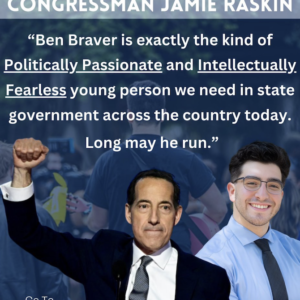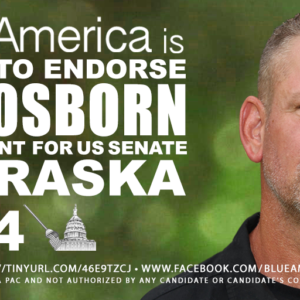Digby wrote a wonderful post based on EJ’s Dionne’s column about meeting with barack Obama the other day — Obama Goes To China:
It has been my experience and reading of history generally that politics is rarely a gentlemanly debate about the public good but is rather a struggle between competing interests. And ideology is usually what binds these interests together through common values and worldviews. In our system those interests have historically formed coalitions within the two political parties which fight it out before the public. I’m sorry that’s unpleasant, but it’s usually the best humans can do short of killing each other.
But perhaps change is upon us and for the first time in history we will have a functional one party government of earnest like-minded public servants dedicated to the betterment of the people. (We have had a functional one party government of like-minded public servants dedicated to the continuation of the ruling class and the status quo many times, so that much is certainly possible.) But everybody calmly sitting down together and agreeing on “what works” would be a first
The way I look at it now is that Obama has admitted that he’s not ideological. At the moment when liberals were at their strongest point in a very long time, Obama wants little to do with progressive ideology. The Conservative swine that have almost destroyed America are salivating at the chance to get back up to the plate for a few more hacks and maybe close their eyes and hit the ball a long way.
They attempted that by nominating Sarah Palin for VP. The Villagers went gaga, and in the moments after she left the Republican convention, she was a huge nationwide hit. She knocked it out of the park. A grand slam. The media couldn’t ask any follow-up questions and she was whisked off to “IAin’tTalkingToYouVille.” Conservatives rejoiced. We have a new hero who will lead us to salvation. Even if her political positions are as wacky as Joe the Plumber. It’s all about the brand, the package, the shiny new chrome wheels on a broken down car. “Boy, those rims are awesome.”
However, reality set in quite quickly. Charlie Gibson asked her simple questions that left her gobsmacked. Katie Couric asked some rudimentary questions like, What do ya read Sarah? She was dumbfounded. “What do I read?” I read, a you know, things…”
America was horrified. She went back for a second shot at the plate and struck out again with Katie the ratings loser. Kind of like Casey at the bat. She whiffed on three pitches and helped sink the Republican Party’s shot at the White House. Sure, there were other reasons why the lost; however, as EJ writes:
But Obama’s anti-ideological turn is also a functional one for a progressive, at least for now. Since Ronald Reagan, ideology has been the terrain of the right. Many of the programs that conservatives have pushed have been based more on faith in their worldview than on empirical tests. How else could conservatives claim that cutting taxes would actually increase government revenue, or that trickle-down economic approaches were working when the evidence of middle-class incomes said otherwise?
Now you understand why the Evangelical movement embraced the conservatives, beyond just the surface affinities. It’s all about faith and they have plenty of it. Faith in religion is quite a different thing than having faith in a governmental philosophy that is a failure. It doesn’t add up. It can’t no matter how much faith one has. Faith applied to our daily lives can have a very positive impact because it can affect the way we live, feel and interact with one another, but not when it meets a number crunching free market economy. The numbers don’t have feelings or emotions, they just are.
Obama is empowering the Republicans and the Blue Dogs with this fiscal responsibility rhetoric and perhaps he believes they will reward him by acting in good faith. And maybe they will. Or perhaps he thinks he can jiu-jitsu the debate in some very clever way to actually bolster social security and enact universal health care. But it’s a big risk. I believe that all this talk about “entitlements” and fiscal responsibility will make it much tougher to sell universal health care and easier to dismantle some of the safety net at a time when many people have just lost a large piece of their retirements, their jobs and their homes. It’s very hard for me to understand why they think it’s a good time to do this.
I know it’s probably right that we give him a chance before we completely go postal about this, but I also know that if this were a Republican saying these things I’d certainly be doing everything in my power to oppose it. But then that’s the beauty of the Nixon goes to China gambit, isn’t it? It neatly shuts down the most fervent opposition. That’s why it’s so frightening. He might just get it done.
As I see it, if Obama does govern without any form of ideology — or as EJ calls it, “Audacity Without Ideology” — then it is up to us to fill the void once his time is done. If he’s successful (and I sure hope he is), what might happen is something different in a way. There are many people who do not follow politics as closely as we do, who just live their lives, and might identify with a particular party because their friends are Republicans even though they do even know the party platform. In the end they might just turn into a new kind of independent — one who leans left, but doesn’t identify with liberals because Obama hasn’t made the case. Their votes will be up for grabs and their votes will dictate the outcome of many more elections.
We progressives need to make our case and succeed in grabbing those votes so that the right kind of politics will win out in the end. Even if Obama doesn’t present himself in a way that highlights the intellectual bankruptcy of conservatism, we will be here to do just that.








Comments